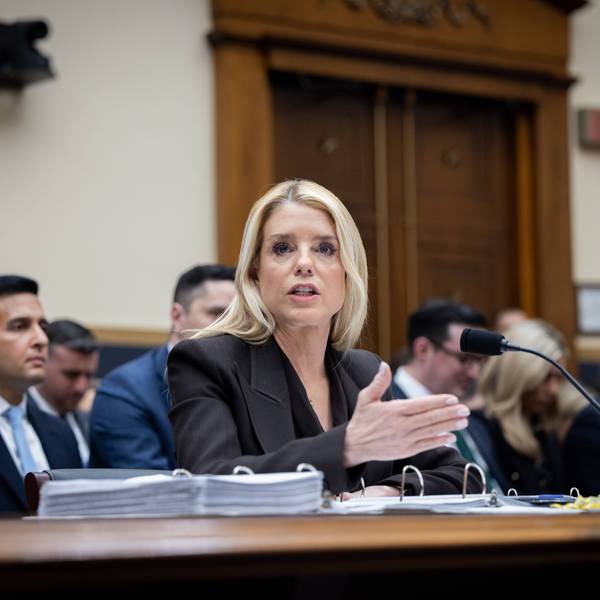As brutal ironies go, it will be tough to beat this one.
On the same day that President Obama launched a drive to identify what he referred to as "excessive" regulation
of business, the Federal Communications Commission and the Department
of Justice-both of which are defined by his appointments-effectively
abandoned more than a century of antitrust principles and approved one
of the biggest corporate mergers in American history.
Instead of regulating the telecommunications industry, the FCC's vote to approve Comcast's
proposed acquisition of a majority stake in NBC Universal-creating a
conglomerate that will be the largest cable provider, the largest
Internet provider and one of the largest producers of content in the
United States-represents the ultimate surrender to the demands of
corporate America.
"Once we allow companies to become this powerful, the FCC does not
regulate them," says Vermont Senator Bernie Sanders. "They regulate the
FCC," says the senator.
No reasonable regulator would debate Sanders's point-or the threat to
democracy posed when traditional protections against media monopoly are
abandoned.
Unfortunately, there was only one reasonable regulator on the FCC, Commissioner Michael Copps.
Copps, a stalwart defender of media diversity and the public interest, cast a lonely vote against the Comcast/NBCU merger.
"Comcast's acquisition of NBC Universal is a transaction like no other that has come before this Commission-ever," argued Copps,
the one Democrat on the commission who was not appointed by Obama. "It
reaches into virtually every corner of our media and digital landscapes
and will affect every citizen in the land. It is new media as well as
old; it is news and information as well as sports and entertainment; it
is distribution as well as content. And it confers too much power in one
company's hands."
FCC chair Julius Genachowski, an Obama appointee, backed the merger,
as did the other Democrat appointed by the president, Mignon Clyburn.
They joined the two Republican members of the commission on the
pro-merger side of a 4-1 vote.
By any measure, it was the wrong vote-as was the Justice Department's dismissal of antitrust concerns raised by the deal.
Copps says: "The Comcast-NBCU joint venture opens the door to the
cable-ization of the open Internet. The potential for walled gardens,
tollbooths, content prioritization, access fees to reach end-users and a
stake in the heart of independent content production is now very real."
Parallel objections came from the savviest observers of media issues on Capitol Hill.
"Big media just got a lot bigger," declared Congressman Maurice Hinchey,
the New York Democrat who chairs the congressional Future of Media
Caucus. "The FCC's decision to allow Comcast to acquire NBC Universal
will burden the American people with more media consolidation, fewer
independent sources of information and higher cable bills. I have no
doubt that today's decision will lead to more mega media mergers in the
near future. That is certainly not in the public interest."
Senator Al Franken, D-Minnesota, was equally adamant,
"The FCC's action today is a tremendous disappointment. The commission
is supposed to protect the public interest, not corporate interests. But
what we see today is an effort by the FCC to appease the very companies
it's charged with regulating," said Franken. "With approval of this
merger, the FCC has given a single media conglomerate unprecedented
control over the flow of information in America. This will ultimately
mean higher cable and Internet bills, fewer independent voices in the
media and less freedom of choice for all American consumers."
Franken vows to fight "any further media consolidation of this kind."
Unfortunately, while Franken and others fight that battle, President
Obama will be busy battling a fantasy: the illusion that business is
excessively regulated. If Tuesday's decisions by the FCC and the Justice
Department confirm anything, it is that business has little to fear
from regulators.



